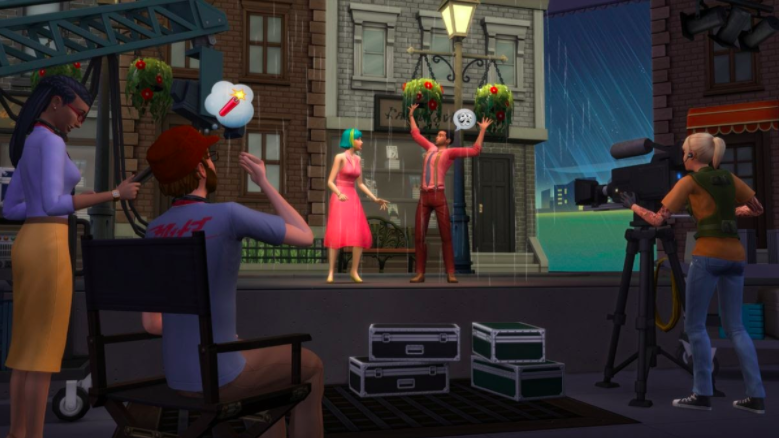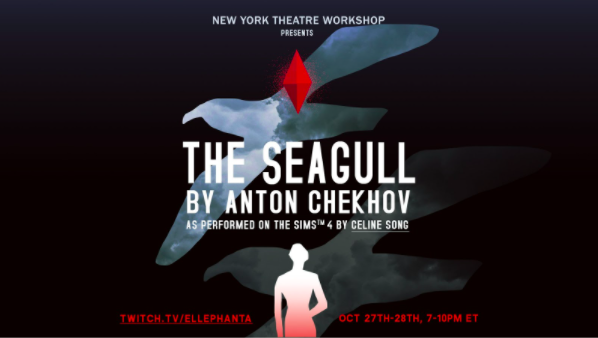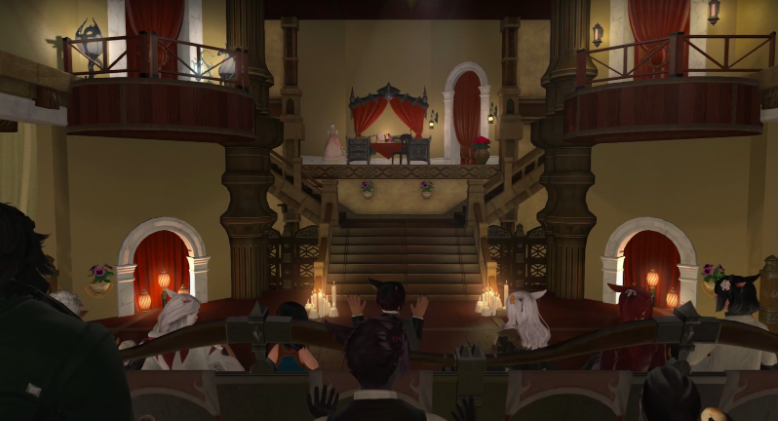Acting through the Avatar: Reimagining Theater through Gaming Technology
written by Katharine Matthias - January 4, 2021
The online theater forces an industry that once asked people to turn off their phones to attend performances through their phones. With the move towards the cyber-stage, theatre happens in a wide variety of spaces online and the line between the end of one performance and the beginning of another one is blurry. On the screen, theater occurs daily: people perform versions of themselves through their online avatars on a variety of platforms.
Celine Song’s The Seagull in the Sims 4 presented by New York Theatre Workshop uses the games on our screens as an alternative medium to explore theatrical storytelling. In Song’s production, a life simulation video game meets Chekov’s classic over Twitch. From the opening moments, the audience interacts with Song through the chat on her livestream, virtually cheering her on as she adapts the play in real-time.
During the show, the gaming community meets the theater community. For example, when Song’s stream briefly drops out, F’s flood the chat. The conversation in the chat reflects how the internet’s language of memes and references can now collide with theater-going audiences in cyberspace. Throughout the gameplay, a live show emerges from the simulation. Video game streaming and live theater share a similar call and response format, so streaming platforms lend themselves to an organic experience between a creator and an audience.
Using games and gaming as a medium opens the potential for a new kind of storytelling. Even though the play doesn’t have actors or a script, Song chooses traits for her Sims and controls where they go. The audience watches Song work as both a playwright, as she crafts a narrative through the game in real time. However, Song is also as much a performer as the avatars within her game, as she narrates her experience and interacts with audience members in the chat. Song’s production reflects a digital trend where millions watch live streams of people playing video games over streaming platforms like Twitch. The Seagull on Sims 4 then combines digital gaming culture with traditional theater-going, using the forms of both mediums to reexamine the Chekov classic.
The intersection between video games and theater highlights how the stage has become a multimedia experience. The Stellazzio Virtual Theater troupe company uses the video game Final Fantasy XIV to explore theater-making online. For example, the company staged a version of The Phantom of the Opera through the gaming platform. The show’s dialogue is communicated through the chat while an audience watches through virtual avatars. In this production, the audience is just as much of a spectacle as the performers, and audience members interact with the stream of the show over Twitch.
Similar to Song’s production, the audience is a critical part of the theater-going experience in the Stellazzio Virtual Theater Company’s show. Staging the show on Final Fantasy XIV makes the ritual of theater—the gathering of people, dressing up for an experience—more important than the actual content of Phantom of the Opera. Through the video game platform, the performance extends to audience members as well, as they get to choose their avatars and how they present themselves to an online community.
Can choreography and blocking also translate to video games? Cristin Terrell posted on Instagram about an online rehearsal of Jesus Christ Superstar that features virtual avatars moving and dancing on stage. In her post, Terrell also shows a director—another avatar—wearing a crown, watching the movement take place. The staging online is a safe, three-dimensional alternative to rehearsing in person.
The unique use of space through video games transforms the theater-going experience. As we continue to grapple with the entanglements of technology and daily life, perhaps creating shows that are specifically made to be performed online will necessitate virtual theater even long after we can gather in the same space again.



